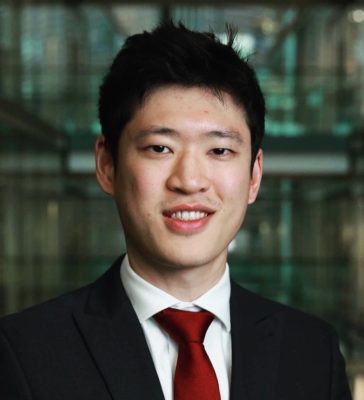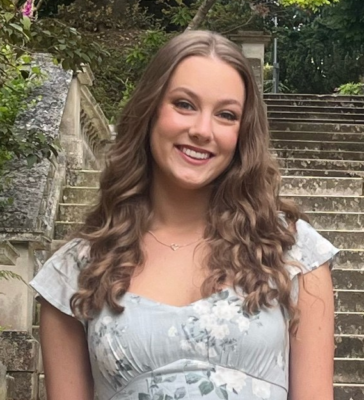
Julius Yee
Current Employer/Organisation Name
Ernst & Young LLP
What have you been doing since leaving Exeter, and what are you doing now?
Upon leaving Exeter, I enrolled into a one-year postgraduate course at UCL to read law and economics, after which I joined BDO LLP, an accountancy firm, as a trainee and consultant in the financial services sector. Mid-way through my chartered accountancy qualification, I moved to the business restructuring group where I focused on advising distressed businesses on financial restructurings and turnarounds. I joined Ernst & Young LLP, my current firm, in February 2020, where I am now a Manager in the Turnaround & Restructuring Strategy group. My day-to-day role involves consulting with businesses on how to optimise their finances and ensure their operations are sustainable, or in the alternative where few options exist, an appropriate exit strategy
Why did you choose this career? And what do you enjoy most about your work?
I took a slightly different path from most of my peers in law school upon graduation, and this was principally due to my profound interest in the field of business and economics. The field of business restructuring, more specifically, provides meaningful work. At the best of times, a successful turnaround could mean saving hundreds, sometimes even thousands of jobs. The work is often highly complex, and often requires thinking on your feet and being alive to evolving situations given the usually distressed nature of the job. I would say that the combination of purpose, problem-solving and intellectual rigour is what motivated me to pursue this career. The aspect I enjoy the most is certainly knowing you can make a profound economic and social difference.
Please tell us if you were a member of any societies, groups or sports clubs?
I was a player (and for one year, Treasurer) for the University of Exeter Basketball Club, where I was an active member competing in both BUCs and local league games from 2011 to 2014. I was also a member of the Debating and Bracton Law Society (as it was then known).
What did you enjoy most about your programme and what was the biggest highlight?
I really appreciated the support I received when I undertook my dissertation under the guidance of Dr (now Professor!) Ana Beduschi. Undertaking a dissertation really enabled me to develop critical research and thinking skills, which remains incredibly important to me today. Having the independence to develop a thesis at an early age really trained me to always start by asking the right question, before framing a hypothesis, and to understand the steps needed to corroborate and validate my theory through evidence-based reasoning and analysis. I ended up scoring a high distinction in the paper, and this foundation led me on nicely to undertake my dissertation research at UCL, which was eventually published in the UCL Journal of Law and Jurisprudence. It is not so much what I learned or the content therein that was important, but rather the process of how to think critically around a problem and the steps to resolve it, which I continue to apply today.
What did you enjoy most about studying here?
The campus is truly world class and unbeatable. I also loved the fact that the library was open 24/7, and I could go in in the wee hours of midnight when I had a nagging issue that needed resolving!
Why did you choose to study at Exeter?
The campus experience offered by the University of Exeter is unparalleled, barring a few other UK universities I could think of. The array of clubs and societies on offer, and the range of sports facilities available, were incredibly important and formed a significant part of my decision. That, on top of it being a leading university in the UK and globally for a range of different subjects, all made the choice much easier for me when I was pursuing my A Level course at college.
What skills and experiences have been most useful for your career?
The soft skills developed during the advocacy and negotiation programmes, as well as mooting and debating, were incredibly useful. Whilst critical thinking and research skills are important, they are certainly not enough for one to thrive, let alone succeed, in a corporate environment (I expect this to be the case, perhaps even more so, in other practical fields such as politics, international relations, etc). On top of presentation and delivery skills, learning how to work in a team and understanding the subtle cues of signalling and incentives are incredibly critical in assessing real world dynamics, and is something one should expect to experience on a daily basis in a real world corporate environment.
What advice would you give to a current student who wishes to pursue your career?
Research into the industry and apply early. It is important to gain work experience if you can in between your penultimate and final year. It is not necessary to gain direct work experience within restructuring per se; any field that involves strategy, consulting or financial analysis would put you in great stead when applying for a graduate programme. It is also possible to apply into a slightly different role at the graduate level, for example M&A, Finance or Strategy at a Big Four, consulting firm or investment bank, before making the switch into business restructuring, if this is indeed the field you really want to get into. Given the level of competition in today’s environment, I would say get ahead by researching diligently, and casting your net wide across a number of different firms in the industry of your choice. Finally, do not be disheartened by rejections because no matter how perfect you are, chances are you will still face a few.
What are your plans for the future?
I just hope to continue making a difference by providing meaningful contributions so that we can all live in a more just, equitable and liveable society, whether in my current role or otherwise.

